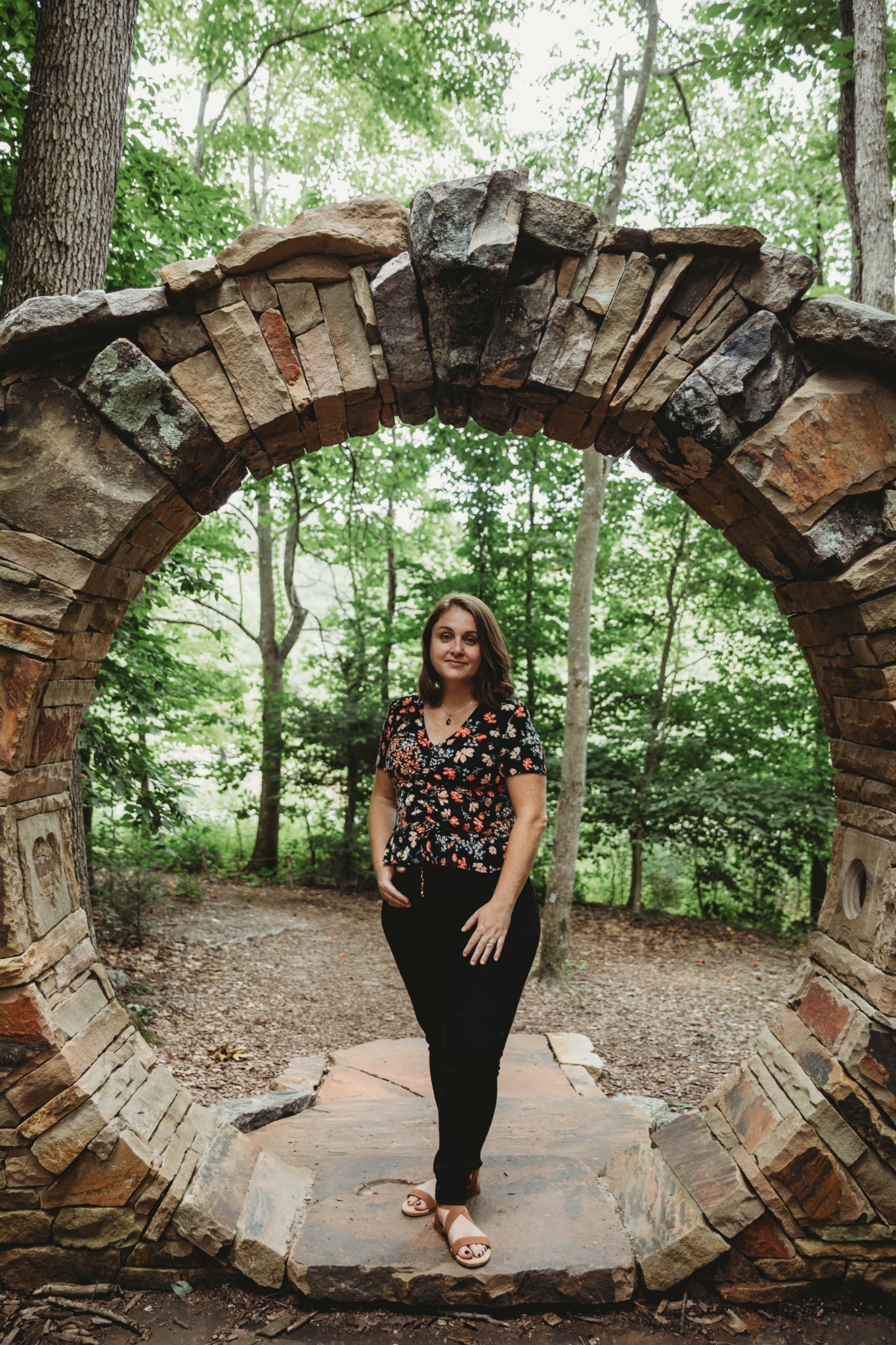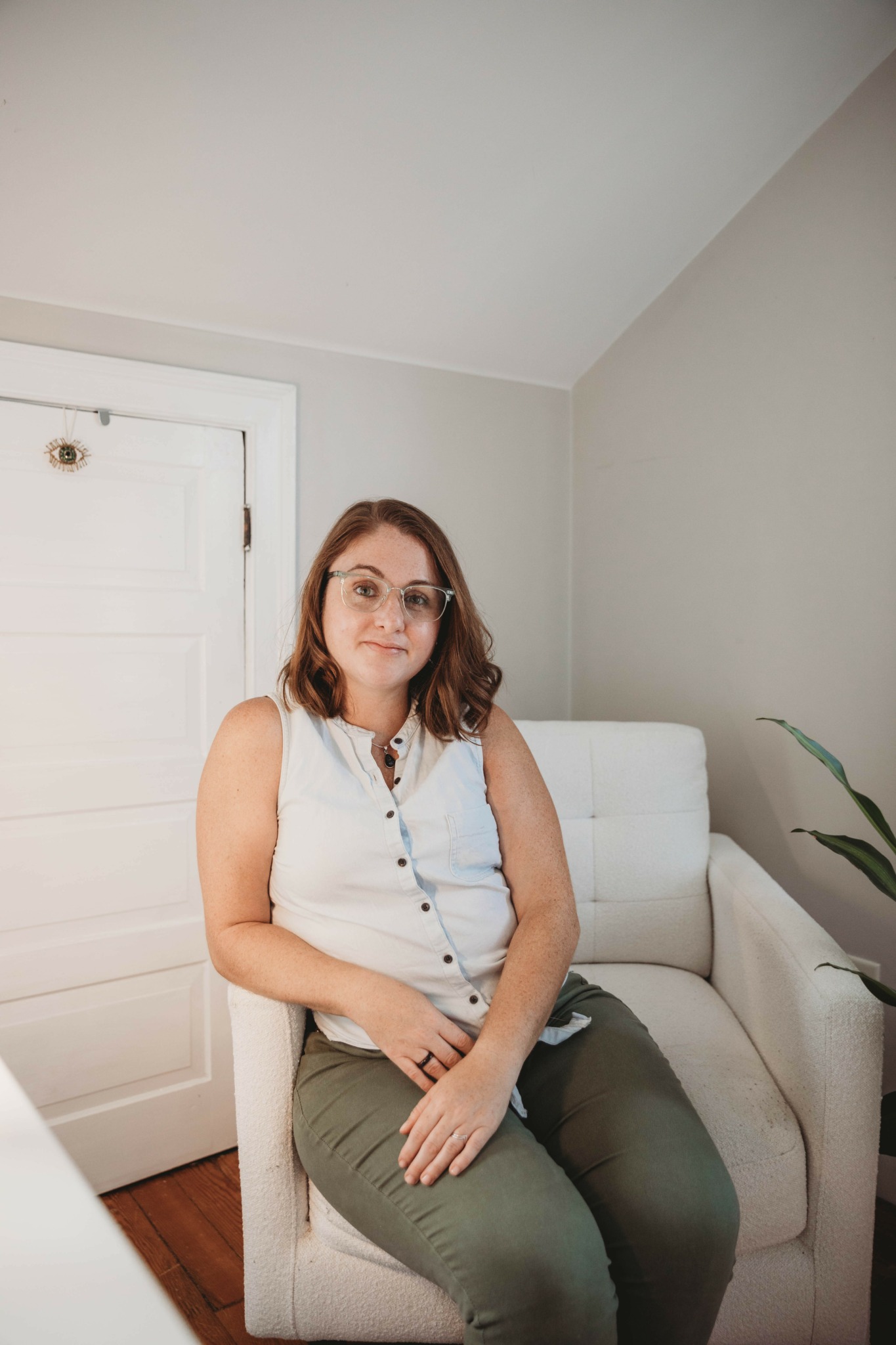Alright – so today we’ve got the honor of introducing you to Jennifer Varley. We think you’ll enjoy our conversation, we’ve shared it below.
Jennifer , looking forward to hearing all of your stories today. Setting up an independent practice is a daunting endeavor. Can you talk to us about what it was like for you – what were some of the main steps, challenges, etc.
I have been a licensed psychotherapist for the last ten years. Even during graduate school, I knew I wanted to work for myself. My goal was to be my own boss by the age of 30, and I achieved that when I left my full-time job to start my private practice.
There were many personal and professional reasons behind this decision. I wanted the freedom to set my own schedule, focus on areas of study that I found valuable, and handle clinical situations with full autonomy. Starting my own practice also addressed the burnout I experienced working in clinics where I was overworked and underpaid.
The turning point came when the not-for-profit clinic I worked for shut down due to mismanagement. I transitioned to a corporate role in Managed Care, which doubled my salary but left me feeling out of alignment with my purpose. Working on the health insurance side of healthcare was not a good fit for me.The stress wasn’t from the workload but from not providing direct care to individuals. This misalignment led to a health crisis, which I now call my “noble adversary phase,” a term rooted in Buddhism. It was a challenging time, but it taught me to prioritize my well-being, use my voice, and let go of perceived safety. Once I committed to making my part-time practice my full-time job, my health began to improve, and I felt like myself again.
Transitioning to full-time private practice required commitment. I worked evenings and weekends for at least a year to establish my business. Hiring a business coach early on was one of my best decisions. In a group format, I learned marketing strategies, including writing effective website copy and a standout Psychology Today profile. This gave me structure, community, and confidence.
I also learned to be strategic with my expenses. For example, I invested in a comprehensive medical records system to streamline administrative tasks, which saved me time and reduced stress. Working with a coach helped me see the value of outsourcing tasks I didn’t enjoy, such as billing and invoicing, to focus on what I do best. When you start to think about your time in dollars, including the time spent doing things you don’t like to do, you start to see your investment in systems a bit differently. These systems are meant to help you. They may require some initial investment but they usually free you up to be creative and to do the work you love.
Managing finances is also crucial when running a private practice. Implementing the Profit-First system helped me separate business and personal finances and stay organized. I also recommend:
Opening a retirement account early—a SEP IRA, for example, is a great option for self-employed professionals.
Saving for paid time off—adjusting to unpaid leave can be challenging, so plan ahead to ensure you can take time off without financial stress.
Finding the right accountant was a process. It took working with a few professionals to truly understand what I needed. Ultimately, I found a female accountant specializing in healthcare, and her guidance was invaluable. She helped me incorporate as an LLC, providing long-term tax benefits and liability protection. This relationship has been an essential investment in my business, and I recommend finding an accountant who aligns with your goals and understands your industry.
While being resourceful is important, don’t hesitate to seek help when you need it. Mentorship can be a game-changer, but approaching it thoughtfully is key. Cold emailing someone who you don’t know to ask for mentorship isn’t necessarily the way to get your needs met and to make lastinig and supportive connections. Here are some tips for meaningful mentorship connections:
Be prepared: Before reaching out, research your questions thoroughly and narrow them down to specific areas where you need guidance.
Respect time and energy: Start with concise requests, such as a 15–20 minute call, to show that you value the mentor’s time.
Offer an energy exchange: If you need ongoing support, consider formalizing the mentorship through a paid consultation or professional arrangement.
By being both thoughtful and resourceful, you’ll find the guidance and community you need to build a thriving practice.
Starting and growing a private practice comes with challenges, but it’s also deeply rewarding. Learning from mistakes, seeking help, and trusting your intuition are key. Each step, even the difficult ones, has contributed to the success and stability I enjoy today.

Jennifer , before we move on to more of these sorts of questions, can you take some time to bring our readers up to speed on you and what you do?
From an early age, I have always been innately curious about other people’s behavior. I have always wanted to better understand myself and the world around me including other people. I decided to major in Psychology in college with the ultimate goal of becoming a psychotherapist. After many years of school and training, I shifted into this role full-time. Early on in my career, I helped clients struggling with substance use disorders. I also spent many years working in community programs aimed at helping the formerly homeless. When I shifted into my own private practice work my focus/niche changed. I started to enjoy working with women healing from their issues with codependency and anxious attatchment styles. I also really started enjoying working with phobias and trauma. My focus continues to shift and evolve the more I grow and evolve as a therapist.
While healing from some serious chronic health issues many years ago I was initated on a personal spiritual journey. Since that time I have seen the value in allowing for one’s soul/spiritual sense of self to be included in counseling. I started to counsel and provide services from more of a transpersonal lens. Transpersonal psychotherapy incorporates the mind, body, and spirit. Transpersonal counseling is not the same as pastoral counseling. There is no connection to orgnaized religion, such as christianity, more of an inclusion of one’s own unique sense of spirituality as it relates to understanding ourselves and the world around us. It is most aligned with the work of Carl Jung who included the soul in his work with clients and differed in many ways from Sigmund Freud in how he understood one’s drives and behaviors.
I believe what sets me apart from others is that I am always curious and open to new ways of working and thinking. In addition to the transpersonal approach, I focus on how to heal the mind/body as naturally as possible using holistic methods and maintaining referrals for other practitioners with the same goal in mind. The tools I use and how I blend them also sets me apart from other practitioners. I pride myself on not considering any method/modality as a “silver bullet”. Many therapists will learn a tool like EMDR and form a strong identity around that. It is in that moment where they decide (conciously or unconciously) that this is the way we all heal.I find that when a therapist does this in a way they put the blinders on to other interventions and other ways of understanding their clients and their issues. I see this as a limitation. This also means I have never fully fit into a single paradigm, I see value in different approaches.
My personal blend of psychotherapy involves talk therapy from a Jungian/ Depth psychology perspective. Initially, I focus on taking someone’s history and balancing that with concrete skills such as emotion regulation techniques. I see my job as a teacher, the goal is to become confident in your own ability to manage life stressors and understand yourself. I prioritize this in my work and unlike many therapists, I take steps to ensure I am not supporting any codependency in the relationship. Therapy isn’t venting or a place to go where you get your validation fix. It’s a place to challenge yourself, to become more conscious, and to heal from your past. It’s normal to be a bit uncomfortable if you are doing the work and making changes at a core level.
I will use tools like EMDR and Hypnotherapy/Hypnosis, Regression therapy (Past Life Regression) as well as Emotional Freedom Technique (EFT) and energy psychology methods. Most of these methods are considered more alternative yet I see incredible results using them daily. All of these tools work to rewire our memory network. I find that cognitive behavioral interventions are incredibly more effective when we use elements of energy psychology at the same time or do so in a trance state.
I also believe that the state of someone’s nervous system depends on what intervention is most appropriate. For example, hypnotherapy can be incredibly efective but can also be a bit intense for people with sensitive nervous systems who are still struggling with being in fight/flight responses. EMDR may make someone a bit more comfortable becuase of its structure but it may not be the best method to process pre-verbal memory where Hypnosis would excel. EFT is the most gentle and offers a unique co-regulation between therapist and client but can also take more time to process memories. I felt called to learn all three so I can use them interchangagbly with clients. We look at the issue we are dealing with and make a choice together on which tool is most aligned.
Most of my clients seek me out because they have tried traditional psychoanalysis and didn’t feel as though it helped them. They also felt like cognitive only approaches didn’t get to the root casue of their suffering and neither helped to rewire their beliefs about themselves completly. Many feel as though it doesn’t go “deep enough” or get to the root. I see a shift happening in the collective where people are seeking a different type of therapist and are more open to alternative approaches and methods.
I’m most proud that I have become the therapist I was always looking for but could never find myself. I worked with a lot of traditional therapists over the years that didn’t fully help me achieve the deep healing results I was looking for. Even my EMDR therapists and Hypnotherapists didn’t fully understand the unique challenges I was dealing with as a highly sensitive empath. This feeling like something was missing did lead me on a path to discovering tools that really help to shift and change patterns at a subconscious level and energetically.
Through my experiences with integrative practitioners and energy healers, I’ve gained valuable insights that I now bring to my clients. I honor their sensitivty and ask different types of questions during my intake to better understand the full spectrum of whats going on. My professional goal is to serve as a bridge between these interconnected worlds—traditional clinical practices and holistic alternative approaches—that are often overlooked or underutilized in clinical spaces.

Other than training/knowledge, what do you think is most helpful for succeeding in your field?
You have to align with your integrity. You can’t do that successfully if you don’t know who you are as a person or as a practitioner. This is why being in your own healing process be it therapy, coaching, energy work, or something else is important. It is my own belief that in order to align with our code of ethics of doing no harm that demands that we work on ourselves and know ourselves as best we can. I believe this is the lifestyle that we choose to live.
In the beginning of getting started, it can be tempting to take on anyone as a client. I have learned that alignment is key. This is why I created a section on my website called client compatibility. I want to put the cards on the table to talk about how I work and how I view a healing process. I ensure that each new client I work with is in alignment with my methods and approach. If they aren’t I offer to connect them to another trusted colleague. Knowing when to refer out is really important. You have to honor your skill set, your limitations, and your own authenticity with the process.
It isn’t always the easiest to say no but you have to trust that that forcing a relationship isn’t worth it and that by telling people the truth, including. yourself, that is the highest good for everyone involved.

Let’s talk about resilience next – do you have a story you can share with us?
There have been times in my career when my own healing felt like a full-time job. Balancing self-employment with personal health crises has been incredibly challenging. One particularly difficult period occurred several years ago when, within a single month, I experienced a breakup, lost my beloved dog, and discovered I had serious health issues. This happened during the height of COVID, while I was living in rural Connecticut, feeling socially isolated after moving to a country home.
Although I took some time off to heal, being self-employed meant navigating this period without the benefits of traditional medical leave. From a psychological perspective, I leaned on my understanding of Carl Jung’s concept of the “night sea journey”—a transformative dark night of the soul. While this awareness gave me a framework for the process I was about to undergo, it also made the depth of the journey more poignant. Knowing what lay ahead was both helpful and daunting.
It took three to four months of focused effort to heal my physical body and find the energy and courage to make life-altering changes. Through deep meditation and self-reflection, I explored my options and asked myself how I could realign with a life that I truly loved. The clarity I gained led me to make a bold decision: I left Connecticut, placed my belongings in storage, and embarked on a journey across the United States while continuing to work remotely.
For six months, I traveled, visiting over 20 national parks. This experience not only satisfied my sense of wanderlust but also became a journey of emotional and spiritual healing. I purged deep-seated fears, reconnected with joy, and rediscovered my vitality. While the trip was both challenging and exhilarating, it was during this time that I began to feel deeply aligned with my purpose again.
Sometimes, creating a new life experience requires bold, radical action. Choosing to fully surrender to the dark night of the soul process allowed me to transform my grief into a deeper sense of purpose. This journey also taught me the immense value of energy work. The healers who supported me during this time were pivotal to my recovery, helping me navigate the path toward healing and wholeness. I am forever grateful for their guidance and the strength I gained through their support.
Contact Info:
- Website: https://www.jennifervarley.com
- Instagram: @alignedpsyche
- Linkedin: https://www.linkedin.com/in/jennifervarley/



Image Credits
Photo credit, Adrianna Pearcy.


